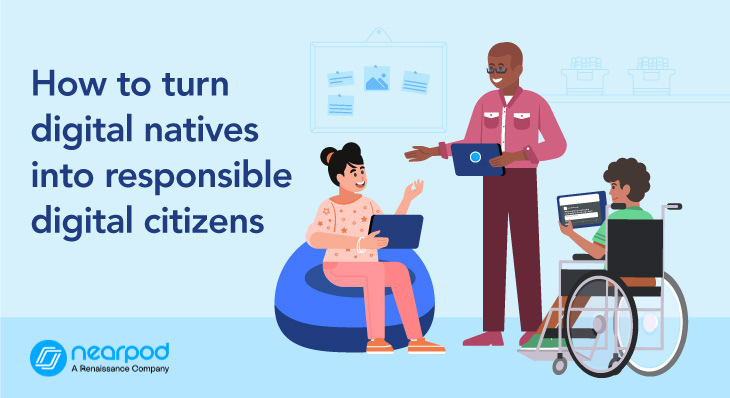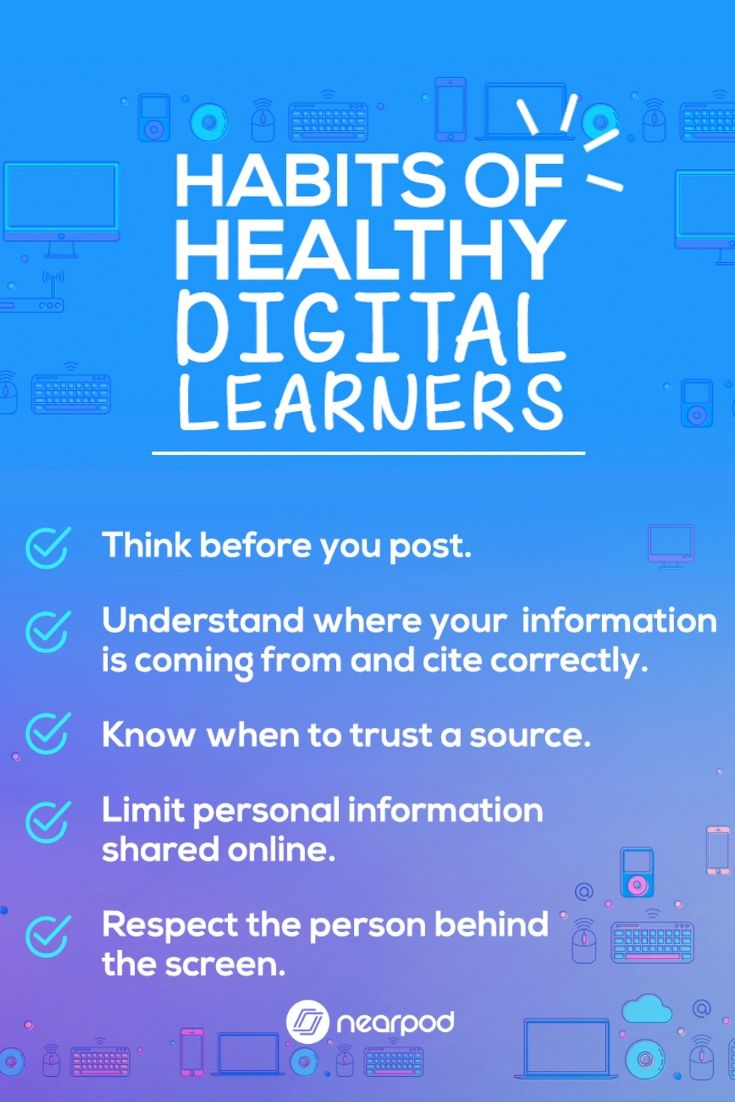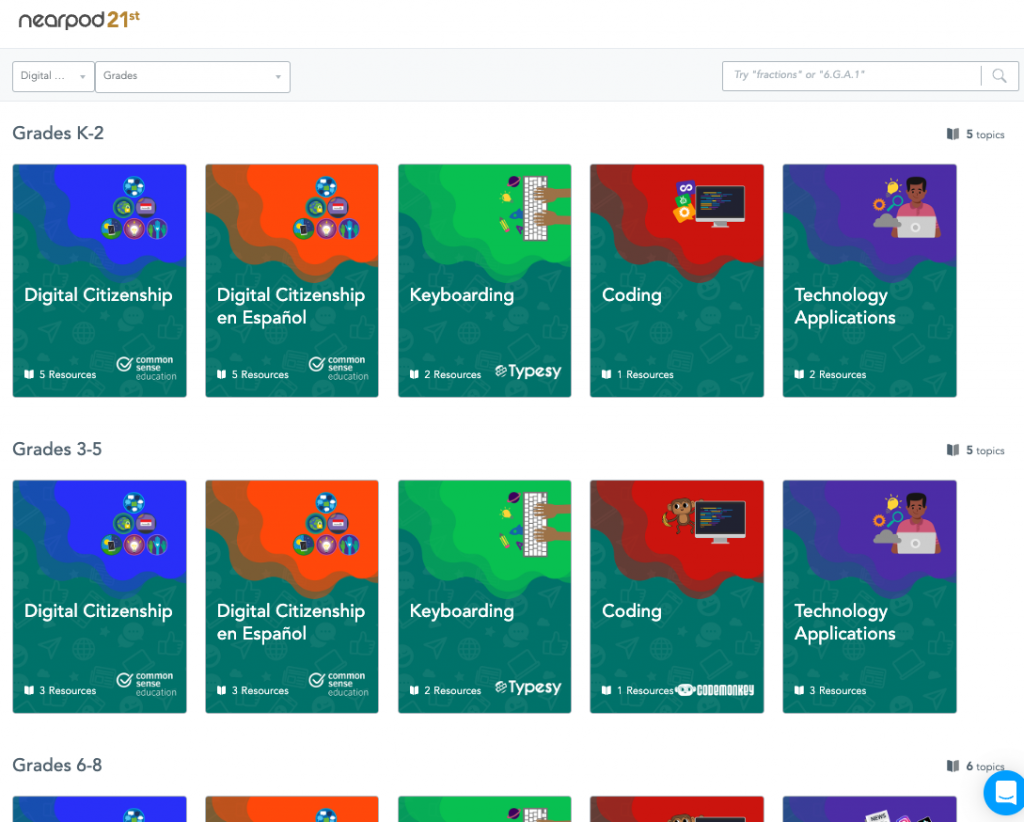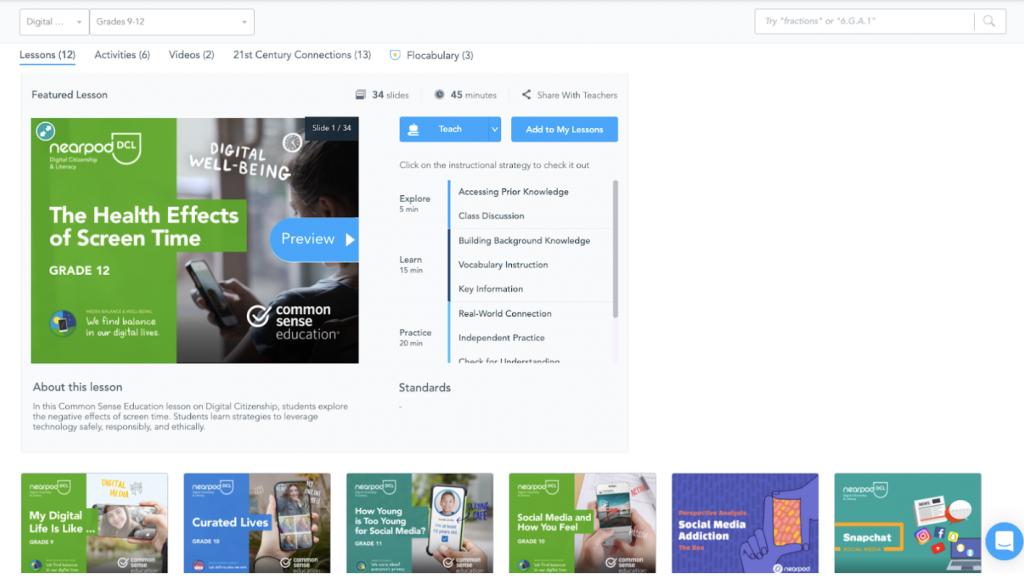
How to turn digital natives into responsible digital citizens
What is a digital native?
According to Cambridge Dictionary, a digital native is a person who is very familiar with digital technology, computers, etc., because they have grown up with them. As of right now, this group includes Generation Z and Millennials. For these current and future generations, learning digital citizenship skills is significant in this growing digital world.
Today’s students are digital natives
Today’s students are digital natives, and technology is their first language. Regardless of what kinds of limits and parameters adults set, our students are going to be online a lot throughout their lives. Students as young as 3 are using tablets, and students as young as middle school are enrolled in online classes.
In a world where platforms like TikTok, Instagram, Facebook, Twitter, and YouTube are integral parts of daily life, responsible digital citizenship is crucial. These platforms are filled with various content, including dramatic posts, negative comments, product advertisements, photoshopped images, and fake news articles. For children and teenagers trying to navigate this digital landscape, it can be overwhelming.
So rather than only filtering or limiting things online (which we still need to do!), it’s essential that we also teach students to be productive members of the online community and how to process their emotions for all those times when we aren’t watching.
It’s essential that we also teach students to be productive members of the online community, for all those times when we aren’t watching. - @ElementaryGeekClick To TweetWhat is a responsible digital citizen?
A responsible digital citizen, as described by Common Sense Education, encompasses all of the following traits through their online presence:
- Identity: Digital citizens are mindful of how they represent themselves online, maintaining a positive and authentic online identity.
- Privacy & Security: They take measures to protect their personal information and online accounts, ensuring their online activities are secure from potential threats.
- Relationships & Cyberbullying: Responsible digital citizenship fosters healthy online relationships and are vigilant against cyberbullying, treating others with respect and empathy.
- Copyright & Fair Use: They respect intellectual property rights, acknowledging and following copyright laws when using and sharing digital content.
- Information Literacy: Digital citizens possess the skills to critically evaluate and discern credible information from misinformation and fake news, promoting digital literacy.
- Digital Footprint: They are aware that their online actions leave a trace, and they manage their digital footprint by making responsible choices and being mindful of the consequences.
Understanding how to be a good digital citizen is crucial for the younger generation, as it helps them navigate the online world effectively. It helps them navigate the internet with awareness and responsibility. When adults set a positive example by commenting respectfully and critically evaluating information, it sets a standard for students to follow, promoting a safer and more constructive online environment for all.
How to turn digital natives into responsible digital citizens
1. Teach foundational digital literacy skills
In the digital age, teaching foundational digital literacy skills to digital natives is essential. Digital literacy empowers students to navigate technology safely and effectively, fostering global connectivity and enhancing their information literacy. Proficiency in digital tools also opens doors to diverse career opportunities. Moreover, digital literacy is crucial for discerning credible information from misinformation, promoting ethical online behavior, and responsible digital citizenship. It’s a shared effort to ensure students are authentically digital and media literate, preparing them for the challenges of the digital world.

2. Promote healthy digital habits year-round
There’s a lot that we can teach about digital literacy, but these are a few big points I always try to hit with my students to teach what is a good digital citizen:
- Limit personal information shared online
- Think before you post! Your online presence is like a digital Sharpie, it can never truly be erased
- Understand where your information is coming from and cite it correctly
- Know when to trust a source and when to check your facts (#fakenews)
- Respect the person behind the screen
Every time technology is integrated into a lesson, remind them of these healthy online habits.
3. Educate on responsible content creation and awareness of privacy and security
Empower digital natives to create content responsibly by sharing about copyright laws, fair use, and why it’s essential to give credit when using others’ work. Encourage their creativity while emphasizing ethical practices when making and sharing digital content.
Alongside these skills, help students understand the importance of privacy and online security through real life examples. This means teaching them how to manage passwords effectively, explaining the benefits of two-factor authentication, and discussing the risks of sharing personal information online. Use this as a chance to highlight the dangers of oversharing and stress the role of privacy settings on social media in protecting their online identity.
4. Encourage a growth mindset
Encouraging a growth mindset is crucial in helping students become responsible digital citizens. Just as in any skill, digital citizenship requires practice and continuous learning. As educators, we hold a unique position to instill this mindset in our students. By emphasizing that responsible online behavior is a skill that can evolve and improve over time, we empower them to embrace challenges and learn from their mistakes. In doing so, we inspire students to continually develop their digital citizenship skills and become confident in their online presence.
5. Lead by example
Educators should lead by example on ways to be a good digital citizen. Keep an empathetic and considerate online presence. Show students how to have meaningful and respectful online interactions and why it’s essential to fact-check information before sharing. Most importantly, create an open and welcoming atmosphere for digital natives to come to you with questions and seek guidance whenever they need it.
Curriculum resources to teach responsible digital citizens
Nearpod’s 21st Century Readiness K-12 Program offers resources to embed 21st-century skills like social emotional learning, digital citizenship, and college and career readiness into every classroom. The Digital Citizenship Curriculum collection includes technology applications, coding essentials, media literacy, and more. We’ve teamed up with experts like Common Sense Education to create these resources that are sure to put your students on the right path.
Below you’ll see a preview of our digital citizenship resources included in the 21st Century Readiness Program. There’s something for every grade level and topic included. Every lesson includes interactive videos and activities that you can launch to extend or re-teach.
New to Nearpod? Make sure you’re signed up to access standards-aligned lessons and activities!
Teachers can sign up for free below to access and create interactive lessons. Administrators can schedule a call with an expert to unlock the full power of Nearpod for schools and districts.
Explore Nearpod’s unlocked free digital citizenship lessons here!

Kali is a tech-savvy elementary teacher whose passion for all things STEM fuels her innovation in the classroom and inspires other teachers to begin their own #edtech adventures.



